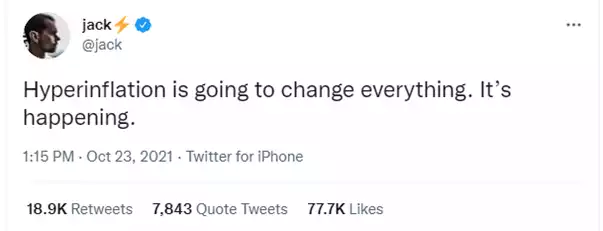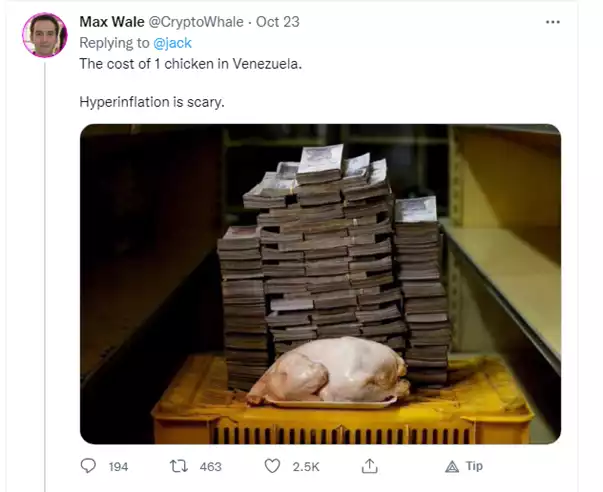Mainstream narrative turning on The Fed
News
|
Posted 15/11/2021
|
5731
Last week's “surprise” inflation numbers rippled through the mainstream financial media. While precious metals investors have seen this coming since QE1, the last few weeks have seen growing murmurs coming from traditional media that are now gathering consensus. Tasked with controlling inflation, the Federal Reserve has been hailed as the saviour of financial markets since the GFC, but we may be seeing the first signs of the hens coming home to roost on their policies.
Writing last Friday, Allianz Chief Economist Mohamed El-Erian castigated the central bankers warning:
“Failure to act promptly would turn the Fed’s increasingly discredited ‘Transitory’ characterisation from one of the worst inflation calls in decades to also a big policy mistake with widespread and unnecessary damage.”
Non-mainstream media outlets and precious metals commentators have been rejecting the ‘transitory’ narrative since it was first wheeled out.
After more than a decade of money printing only turning up in the prices of equities and real estate, the monetary policy of the last 18 months has finally seen some of that inflation bleed into everyday goods and commodities ramping up. Inflation has been at or just under 1% a month for most of the year, and even going by the heavily criticised readings from the Bureau of Labor Statistics, annualised inflation is north of 6%. Biden admitted on Friday that “today’s report shows an increase over last month. inflation hurts Americans pocketbooks”.
MSNBC tweeted out an op-ed with the by-line “Why the inflation we’re seeing now is a good thing”. The article opined that “American consumers are, relatively speaking, flush, and it’s that strong demand for goods and services that is sending prices higher”. By the same argument, Venezuela’s consumer demand is experiencing parabolic growth. According to The University of Michigan Consumer Sentiment Index, consumer sentiment has now dropped to ten year lows. One of the leading causes for cutting back with 25% of respondents citing ‘higher prices’ as their leading concern. After significant backlash, MSNBC deleted the tweet.
Twitter’s Jack Dorsey and Elon Musk have been tweeting about rising inflation since late October:

This post got a lot of attention. Incredibly, the post saw both Peter Schiff warn that Bitcoin is not the answer and Michael Saylor state that Bitcoin is the solution. The tweet also generated a lot of comparisons with Nigeria suffering from 16% annual inflation and a photo of the cost of a single chicken in Venezuela.

For inflation to take off, it requires there to be a crisis of belief. While this might not be happening just yet, it’s becoming harder for The Fed to keep the ‘transitory’ line going. Janet Yellen declared on Tuesday that “I’d expect price increases to level off, and we’ll go back to inflation that’s closer to the 2% that we consider normal”. In the words of Doug Casey, the chances of that happening are slim to none, and Slim’s out of town.